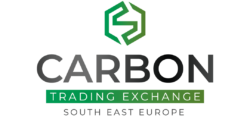European natural gas prices climbed above €33/MWh, nearing a two-week high, as geopolitical concerns intensified. Israel’s strike on Hamas leadership in Qatar raised worries over potential supply disruptions, since Qatar is a key gas supplier to Europe, just ahead of the heating season. Prices were also influenced by reports that the EU may impose new sanctions on Russian banks and energy firms.
TTF gas futures on the ICE market for October 2025 delivery rose in the second week of September compared to Week 36 of 2025, staying around €33/MWh throughout the week. On Wednesday, September 10, the weekly maximum settlement price reached €33.122/MWh, 0.6% higher than the previous day but 3.1% lower than the prior Wednesday. Thursday, September 11, saw the weekly minimum at €32.323/MWh, a 2.4% drop from the previous day and 0.4% lower than September 4. By Friday, September 12, the settlement price was €32.66/MWh, with the weekly average 2.4% higher than Week 36.
On the supply side, Chevron submitted a bid to explore natural gas in four offshore blocks near Crete, in partnership with HelleniQ Energy. The Greek government launched the tender earlier this year after both companies expressed interest in deep-sea blocks off the Peloponnese peninsula and Crete. Chevron emphasized the strategic importance of the Eastern Mediterranean, calling it a priority for future operations.
Greece produces limited domestic oil but relies heavily on gas for electricity. The country has increased renewable energy output but continues to explore local gas resources to reduce dependency on Russian imports, following the EU push after Russia’s invasion of Ukraine. Major gas discoveries off Egypt have raised hopes that Crete’s surrounding waters may contain substantial reserves. ExxonMobil’s consortium has already collected seismic data from nearby licensed blocks before considering test drilling.
Politically, the EU is preparing a 19th round of sanctions targeting roughly 2,600 Russian individuals and companies, focusing on banks, energy firms, and oil trade to pressure Moscow over the war in Ukraine. Proposed measures may restrict Russian payment systems, credit card networks, cryptocurrency exchanges, and third-country oil traders. EU Commission President Ursula von der Leyen stated that the bloc is considering accelerating the phase-out of Russian oil and gas as part of this sanctions package. The Kremlin has rejected any pressure, stating that sanctions will not change Russia’s course in Ukraine.
Meanwhile, the United States continues to push for increased American LNG exports to Europe. A recent trade agreement obliges Europe to adjust certain regulations and antitrust policies, while committing to a sharp rise in US commodity imports to balance trade, which is currently heavily in Europe’s favor.
